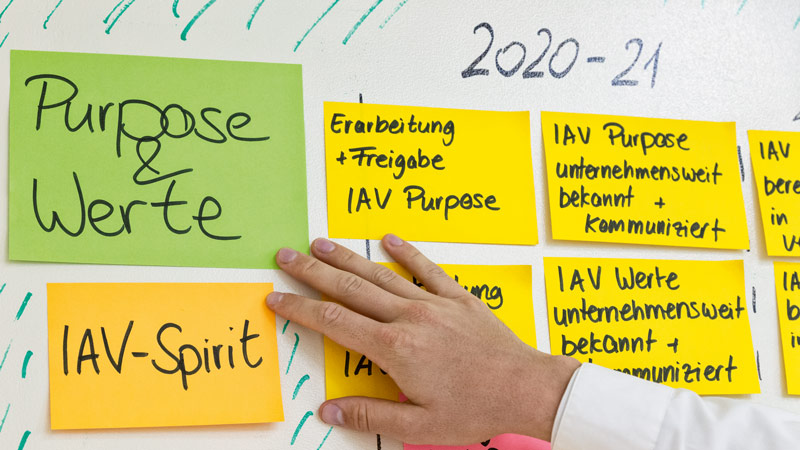HEAT Concludes First Test Phase
09.09.2019 —
The test operation run of the HEAT shuttle in Hamburg’s HafenCity was brought to a successful conclusion. At the same time, localizing the vehicle in road traffic and its reaction to hindrances was also put to the test. The next test phase takes place in spring 2020.
A one-month trial run in the HafenCity brought the first phase of the HEAT research and development project (Hamburg Electric Autonomous Transportation) to a successful conclusion. Over the last few weeks, the autonomous minibus was put to the test on a fixed route without passengers and with a professional vehicle attendant. Attention focused on precise localizing of the vehicle, the way it reacts to hindrances and how the infrastructure behaves in continuous operation.

Natalie Rodriguez, overall project leader for HOCHBAHN: “We were pleased that the vehicle coped automatically with the planned route. We came up against various challenges in daily traffic situations, including cyclists, other cars and double parking, but this was exactly what was needed. Our partners recorded many use cases under real-world conditions. These are now being evaluated to reach conclusions for the next test phases.”
Henning Schubärth, project manager in the Department for Economic Affairs, Transport and Innovation: “HEAT has generated great nationwide interest, which is an indication of the ground-breaking work that we are all involved in here in Hamburg. The “silent” success of this first test phase on public roads encourages us to continue on this journey step by step.”
Veit Lemke, IAV project manager: “We are definitely satisfied with the way this first phase went. All the partners worked well together, including HHVA (Hamburg Transport Facilities) and the local police force. From a technical point of view too, this first important step has been a great success: the vehicle detected obstacles in every situation without making any mistakes and reacted in accordance with the rules.”
Dr. Jan Henrik Voß, project manager for SIEMENS Mobility: “This first trial phase already verified the added value of the roadside infrastructure in the extended field of vision for the vehicle. The next step entails enhancing the interaction between roadside infrastructure and vehicle, preparing the next installations along the route and planning where we and HHVA go from here.”
The data recorded during the journeys will undergo comprehensive evaluation during the next few months, in order to progress with further development of vehicle, sensors and infrastructure. Before the second test phase in spring 2020, the hardware and software will be upgraded for the next project milestone. Similarly, HHVA and SIEMENS will be expanding the roadside infrastructure for the planned extended route.
The first passengers should then be taken on board from mid 2020, together with the vehicle attendant who will still be present at that point. The intention is to obtain approval for automated driving without a vehicle attendant by the ITS World Conference in October 2021.
Project partners
Hamburger Hochbahn AG
HOCHBAHN was founded in 1911 and operates a fleet of more than 250 underground trains and 1,000 buses carrying more than 1.2 million passengers every day. HOCHBAHN is one of 34 partners in HVV (Hamburg’s integrated transport association), serving 1,400 stops. It is the largest transport service provider in the HVV catchment area. Around 5,000 employees work round the clock for HOCHBAHN to provide an attractive local public transport service offering comfortable, convenient, future-oriented mobility in Hamburg.
Department for Economic Affairs, Transport and Innovation (BWVI)
BWVI is one of eleven departments serving the Free and Hanseatic City of Hamburg. It is responsible for economic and transport policy and for promoting innovation. In implementing the HEAT project, BWVI reverts to the expertise of the Department for the Interior and Sport, the Police Transport Department, the LBV (State Transport Authority), the LSBG (State Office for Roads, Bridges and Waterways) and the municipal company HHVA (Hamburg Transport Facilities). In the context of the project, LSBG is responsible for traffic planning while HHVA implements and operates the roadside infrastructure.
IAV
IAV with its workforce of more than 8,000 employees is one of the world’s leading engineering partners to the automotive industry. The company has been developing innovative concepts and technologies for future vehicles for more than 35 years, generating turnover of over € 900 million in 2018. The client base includes all renowned automotive manufacturers and suppliers. Besides vehicle and powertrain development, IAV has been involved in electromobility and autonomous driving from an early stage and is today one of the leading engineering providers in these fields. Besides its Development Centers in Berlin, Gifhorn and Chemnitz/Stollberg, IAV also has other sites, among others in Munich, Sindelfingen and Ingolstadt, in Europe, Asia and also North and South America.
Siemens Mobility GmbH
Siemens Mobility is a separately managed company belonging to Siemens AG. Siemens Mobility has been a leading provider of transport solutions for more than 160 years and offers a portfolio that is constantly being expanded with new innovations. The core business includes rail vehicles, railway automation and electrification solutions, turnkey systems, smart road traffic technology and corresponding services. Siemens Mobility offers mobility operators all over the world digital concepts to make their infrastructure smart, to safeguard sustainable value enhancement throughout the entire lifecycle, to enhance passenger comfort and to guarantee availability.
IKEM
The IKEM (Institute for Climate Protection, Energy and Mobility) is an independent research institute that looks at current climate protection issues together with the energy and mobility transition. One of its focal issues is autonomous driving. Among others, IKEM offers legal support for pilot tests and examines business and operator models for autonomous shuttles.
DLR
The DLR (German Aerospace Center) is the aerospace research center of the Federal Republic of Germany. It also pursues research and development work for the energy, transport, safety and digitization sectors. In the HEAT project, DLR researchers investigate the needs and assessments of passengers and other road users with regard to autonomous buses.
Media contacts
Hamburger Hochbahn AG
Christoph Kreienbaum – christoph.kreienbaum@hochbahn.de – +49 178 6282121
Behörde für Wirtschaft, Verkehr und Innovation
Susanne Meinecke – susanne.meinecke@bwvi.hamburg.de – +49 40 42841-2239
IAV
Markus Mrozek – markus.mrozek@iav.de – +49 152 22908801
Siemens Mobility GmbH
Eva Haupenthal – eva.haupenthal@siemens.com – +49 152 01654597
IKEM
Dennis Nill – dennis.nill@ikem.de – +49 30 4081870-17
DLR
Jasmin Begli – jasmin.begli@dlr.de – +49 172 2753385
- Automated Driving
- HEAT

